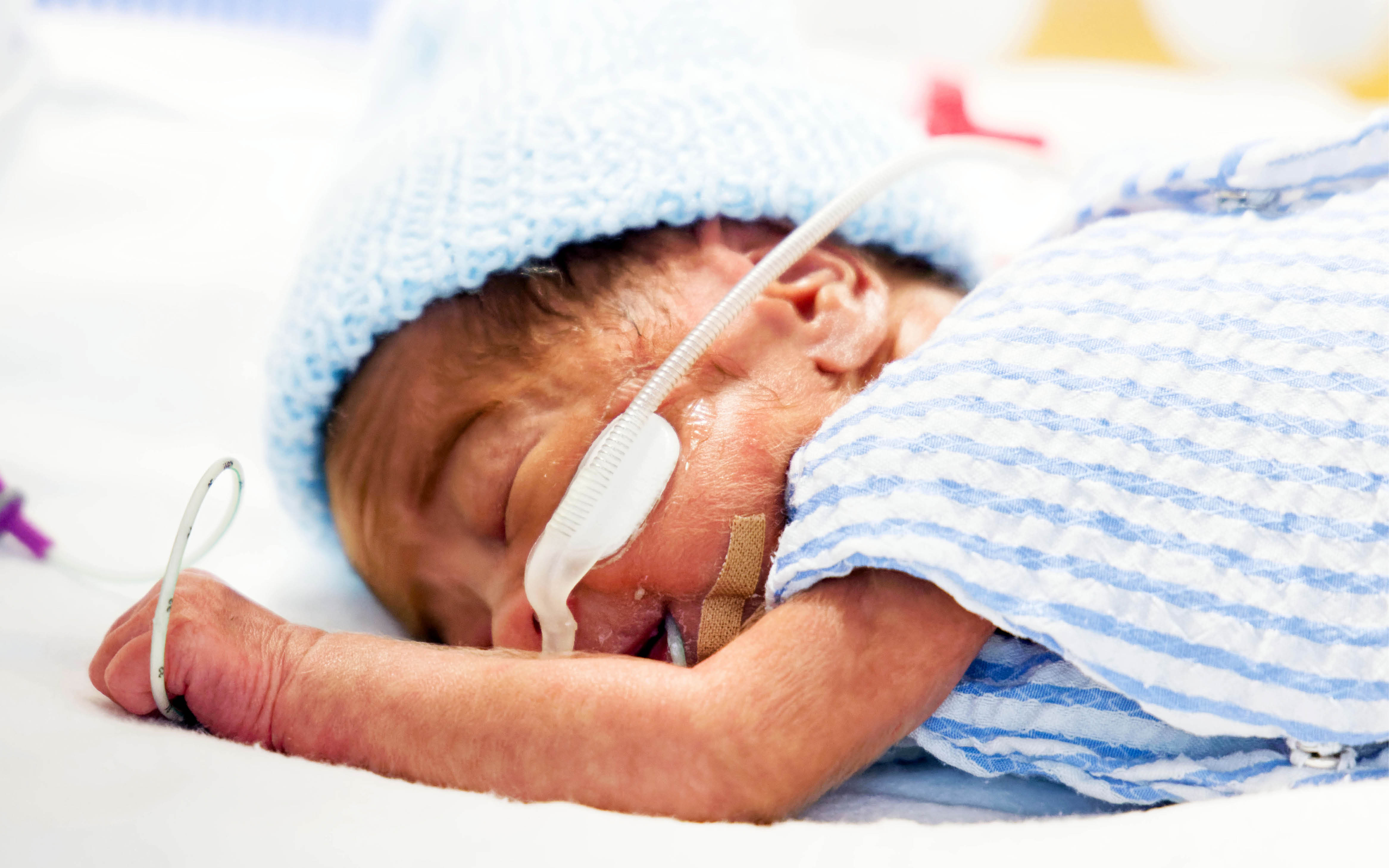Search

Preterm babies have a heightened risk of infection as their immune system is not mature. The Neonatal Health Team is exploring new ways to diagnose, prevent and treat infections in WA's smallest patients .
The physicochemical compatibility of alprostadil injection with secondary intravenous (IV) drugs and 2-in-1 parenteral nutrition (PN) solutions used in Neonatal Intensive Care Unit settings was investigated.
Antibiotic exposure in neonatal intensive care units (NICU) is high. This study describes antibiotic use in very preterm infants and examines the association between duration of exposure and outcomes in blood culture negative (CN) infants.
The abundant skin commensal, Staphylococcus epidermidis, is the leading cause of late-onset sepsis (LOS) in preterm infants but rarely causes infections in term infants and adults. Staphylococcal virulence mechanisms and the role of the preterm immune responses in driving these life-threatening infections remain poorly understood.
The neonatal skin is central to early survival and immune development. Far from being a passive mechanical barrier, it integrates physical, chemical, and microbial defences that together protect the infant in the immediate postnatal period. In preterm infants, structural immaturity, reduced antimicrobial capacity, and altered microbial colonisation confer heightened vulnerability to infection and inflammation.
Impaired oxygen delivery or blood flow to the brain around the time of birth can cause injury. Hypoxic ischaemic encephalopathy is a leading cause of death and disability in term and near-term infants.
Viral infections are associated with significant morbidity and mortality in neonates. The COVID-19 pandemic led to changes in viral epidemiology in Western Australia. The impact on patients in neonatal intensive care is uncertain.
Appropriate use of antibiotics is life-saving in neonatal early-onset sepsis (EOS), but overuse of antibiotics is associated with antimicrobial resistance and long-term adverse outcomes.
Tick-borne diseases are a growing global health concern. Despite extensive studies, ill-defined tick-associated pathologies remain with unknown aetiologies. Human immunological responses after tick bite, and inter-individual variations of immune-response phenotypes, are not well characterised.
Skin care for very and extremely preterm infant is an important and previously underappreciated topic. Coconut oil skin care for preterm infants is a promising option, but several important questions remain including the theoretical potential for allergic sensitization.
Histo-blood group antigens (HBGAs) may influence immune responses to rotavirus vaccination.
This phase III study evaluated safety, tolerability, and immunogenicity of V114 (15-valent pneumococcal conjugate vaccine) in healthy infants. V114 contains all 13 serotypes in PCV13 and additional serotypes 22F and 33F.
Infection by group A Streptococcus (Strep A) results in a diverse range of clinical conditions, including pharyngitis, impetigo, cellulitis, necrotising fasciitis, and rheumatic heart disease. In this article, we outline the recommended strategies for Strep A treatment and prevention and review the literature for economic evaluations of competing treatment and prevention strategies.
Preterm birth (PTB) and stillbirth remain two of the most important causes of death, morbidity, and disability in childhood. Despite efforts to reduce PTB and stillbirth worldwide, rates of these adverse outcomes remain persistently elevated, independent of income setting. There is an urgent need for more effective interventions to reduce associated neonatal and early childhood morbidity and mortality.
Adverse pregnancy outcomes including maternal mortality, stillbirth, preterm birth, intrauterine growth restriction cause millions of deaths each year. More effective interventions are urgently needed. Maternal immunization could be one such intervention protecting the mother and newborn from infection through its pathogen-specific effects.
Group A Streptococcus causes a wide range of diseases from relatively mild infections including pharyngitis to more severe illnesses such as invasive diseases and rheumatic heart disease (RHD). Our aim is to estimate the cost-effectiveness of a hypothetical Strep A vaccine on multiple disease manifestations at the global-level.
Since the emergence of SARS-CoV-2 in 2019 through to mid-2021, much of the Australian population lived in a COVID-19-free environment. This followed the broadly successful implementation of a strong suppression strategy, including international border closures. With the availability of COVID-19 vaccines in early 2021, the national government sought to transition from a state of minimal incidence and strong suppression activities to one of high vaccine coverage and reduced restrictions but with still-manageable transmission.
The current framework for testing and regulating vaccines was established before the realization that vaccines, in addition to their effect against the vaccine-specific disease, may also have "non-specific effects" affecting the risk of unrelated diseases. Accumulating evidence from epidemiological studies shows that vaccines in some situations can affect all-cause mortality and morbidity in ways that are not explained by the prevention of the vaccine-targeted disease.
